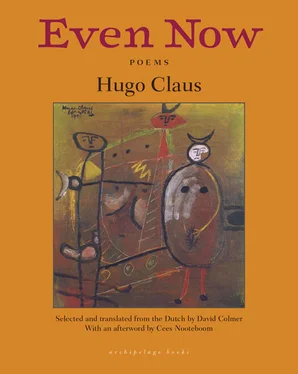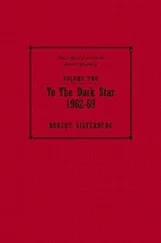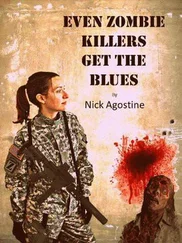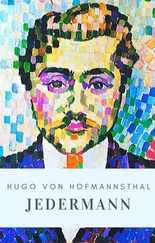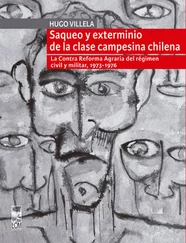The local butter
tastes of poppies.
Memorial Statue in West Flanders
The grazing of the nearby cattle.
The farmer sitting in the shade of the pale statue.
The trees that bow for the wind from the sea.
His parents bought the patch of land
where he was buried in mud up to the jawbone.
He was a gifted student.
“Maths or something,” the farmer says.
The sculptor worked from an old school photo.
“Two years later the parents died as well,” the farmer says.
“It’s getting cold. I have to milk the goats.”
More bones somewhere else.
Corroded by the acid of the polder soil,
a childless son with a guilty stare,
as if looking down at his geometry,
his grave in the grass.
“I work in the chemical industry, Sir,
where you die by degrees.
After ten years you get to retire
because of the fumes in your lungs.
“I’ve been there fourteen years, Sir,
the last two as a driver.
And in those two years I haven’t had to vomit once,
because of the fresh air.
“We Belgians drive better than anyone else in all of Europe,
and I’ve been everywhere.
Because we drive dangerously.
It makes you more careful of the others,
who drive dangerously too, but won’t admit it.
“And you know the most beautiful thing I’ve seen?
And I’ve been in the Sistine Chapel,
and I’ve seen Gisele lift her skirts in the Mocambo.
Well, it’s in a shop in Bruges,
a wine-red bed. Empire. Or is it Louis Quinze?
“In that bed, with Gisele, I would forget my three children
and the entire calendar.
Love, Sir, should be in satin.
And death, Sir, is the feeling you get in your stomach
when you know you will never be able to afford a bed like that.”
Thirty pigs, fifteen cows, a tractor 75 HP,
a TV, fifty chickens, no kids.
(“We’d have liked some, sure, Sir,
but we’re not keen on doctors or hospitals,
’cause what if something happened to the wife, Sir,
who’d take care of the stock?”)
Villas—“Morning Glory”, “Spring Breeze”, “Bambino”—
are planted in their fields.
Their rye and wheat dissected by
the Flemish Touring Club’s recommended walking path.
Sundays, after Mass, they shuffle,
wearing shirts, transformed, clean-shaven, awkward, over their fields,
staring at the earth they don’t see on workdays,
with their short-sighted grubbing and grabbing.
Potatoes and bacon weekdays
and every Sunday a chicken out of the freezer.
When the air boils and the crows are gasping, they drink seven
slugs of brown ale
leaning on the oil tank in front of the house.
They only tremble after a day tossing hay up over their heads,
or filling in the deposit slip at the Municipal Credit.
(“Three to three and a half percent. Is it safe?
The notary says it is. But what if they get in trouble, Sir?”)
Does the tolling of the village bell
preserve them from their fate? To avert the evil eye they nail three
bats to the barn door, alive.
The Rubens Room in the Antwerp Museum of Fine Arts
Faced with so much irrepressible flesh, the girl in the museum smiles
like a young nun in the sun.
Such excessiveness is hardly human;
the human, as her ethics teacher taught her,
is a mammal, true, but these women,
this endless flood of fleshy quince (the perfect bridal fruit)? No,
the girl laughs. She hugs her Avenue to her breasts,
two underdone fried eggs with lots of runny white.
Does she have the same tissues?
Will a similar surrender one day melt her skeleton
into such filthy, sloppy tumescence?
If this blubber is divine,
then life’s a thing that suffocates in gravy and jelly
with udders and tangled hair,
a thing that strangles by embrace.
The girl laughs. Chastity, as far as she’s concerned, can triumph over love
and death can triumph over chastity.
The vulva deificata is a different commodity,
installed in her it’s quite a different thing,
a whisper, rather, in the night in spring.
(in reply to a newspaper survey about the previous year)
Year of atrocities, year of TV screens and stock reports,
Year of milk and honey if you’re asleep,
Year that weighs on your stomach if you’re awake,
Sweet year, good year for sleep-walkers,
Year that 25 billion Belgian francs went to NATO
for tanks, flags and jets
(mosquitoes in death’s unbounded clouds)
Year of Mobutu, we send him assistance in dollars and cents knowing
they’ll
blossom into percentages,
Year of Voeren, which people want to rescue for a language they only read
in
advertisements,
Year of freeways for ever hastier sheep,
Year of rot in Belgian skulls,
Year that licked at the trough of folklore,
Year (fortunately far from our piggy banks and our folk dancing)
of the escalation there where children grey with fear
dig themselves deeper into mud
(Give them this day our daily napalm
and later our canned food and later our prayers)
Year that freezes smiles.
That was the year I went to live in a village
with books, a woman and a child
that grows
while I tell stories about tigers in the East.
III
The singular sky
That brightens the earth.
The path that leads our steps
And in it our track: a dotted line to the end.
Nature: bordered.
The land: bound in.
In shades of salmon and metal.
The posts that sway when you move.
The reflection of the saffron field.
The pigeon behind wire.
The mouse-grey on the floor of the cage
Is the old seeds.
Speckled and striped.
The world seems trapped in a grid.
Your eyes pierce the pattern,
Mottled, almost hidden,
The hole is a mirror.
The simplicity of a bucket.
And finally, awake, present,
Never ready-varnished, only limited
By walls of gradual lines,
Turning on the spot,
The man bending down to his bucket.
Home. Almost a world of its own.
In the Paris I now hate,
in ’55, in rooms that were scorching,
we were hungry,
you showed a lot of breast that summer—
Your lips: scornful of all others.
You’re in the night now and in water
and I — do you believe me? am senseless, sleepless.
You who made velvet ferns
in what I must call “back then”.
Even now you confuse my thoughts of you.
They flake and chip, chattering away
in this disenchanted canto for a slight, lost lady
Ah, the emptiness of my regret
and the wandering desperation
of my provisional present tense
with you in many coats, flowering flesh
in the bygone, bygone zone.
She said, “I would never kill.
Not even if a man a meter away from me
was strangling my little boy.
All life is sacred.”
And I saw her in sodium light,
the sibyl with her outrageous law,
in heat with suicide and prayer.
How the clay hungers for the skeleton
and the earth for the dung
and the mop for the blood!
And how I dance in my bestial sweat
Читать дальше
